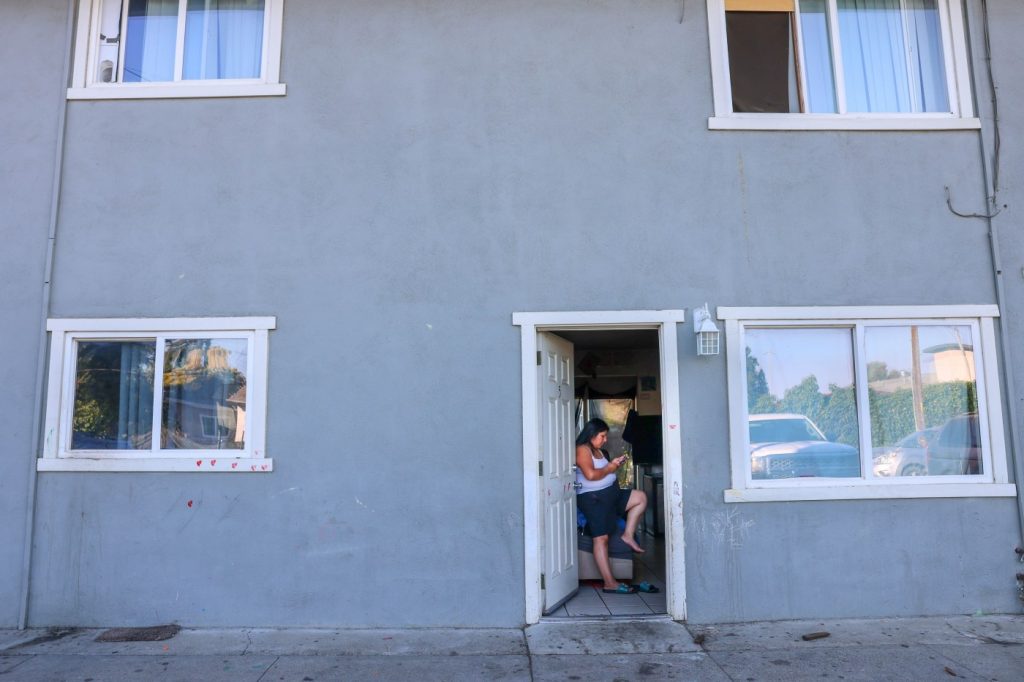Farmworkers throughout California face overcrowded housing, substandard living conditions, and even homelessness as they labor to power the most productive agricultural state in the nation. But new laws could help alleviate that.
Today, Gov. Gavin Newsom signed legislation meant to bolster housing options for farmworkers, who face stark housing challenges throughout the state.
AB 3035, sponsored by local Assemblymember Gail Pellerin, aims to make it easier for developers to build farmworker housing in Santa Clara and Santa Cruz county.
“Everyone in our community deserves a safe, dry, and warm home to live and raise their families. Too often, those who grow our food are living in shipping containers, sheds, cars, or other substandard housing,” said Santa Clara County Supervisor Sylvia Arenas, who helped write the bill, in an email. “Today’s action is one critical step in a much larger workplan to fix decades of neglect while this issue spiraled out of control.”
The bill comes after a 2018 report showed that the county needed 2,100 more units for migrant and year-round farmworkers. The bill coasted through the Assembly and Senate without a single “no” vote.
The new law would streamline approval to allow developers to build up to 150 units of farmworker housing within 15 miles of grazing or farmland. Previously, the 2019 Farmworker Housing Act eased zoning laws to allow developers to build up to 36 units on agricultural land. However, it had virtually no effect on farmworker housing in the region, since it was too expensive to run sewer and water from the nearest municipality out to remote, rural locations.
By allowing projects up to 15 miles away from farmland, the law would permit developments to move closer to nearby municipalities so that they could more readily tap into existing water and sewage, bypassing the bureaucratic morass that bogs down prospective rural projects. The expanded cap from 36 to 150 units is meant to make it more cost-effective to build.
“This is a big win for farmworkers who lack access to enough safe and affordable housing in Santa Clara and Santa Cruz Counties, which still need to develop hundreds of units to meet their needs for farmworkers,” said Pellerin in a statement. “With AB 3035 approved, Santa Clara and Santa Cruz Counties will be able to develop the multifamily developments needed, with access to clean and safe drinking water and utility infrastructure, for our critical agricultural worker community.”
“I would applaud the governor and the legislature for passing this important bill. We need to start somewhere and to remove barriers … is a great start,” said Matt Huerta, an affordable housing consultant based in Monterey County, who is optimistic that it will begin to bring in more housing for local farmworkers and hopes that counties throughout the state will soon join. “As soon as we see proof of concept, we need to quickly move to expanding it to the rest of the state.”
However, he noted that the law does not allocate any funding for developers and argues that more investment is needed to solve the farmworker housing shortage.
The governor also signed two other bills related to farmworker rights and housing. AB 2240, from Assemblymember Joaquin Arambula, is meant to make it easier for migrant farmworkers to secure and maintain housing at migratory farmworker housing centers operated by the California Department of Housing and Community Development. SB 1105, from state Senator Steve Padilla, extends sick leave to allow outdoor farmworkers to use sick days to avoid some emergency weather conditions.
“Farmworkers are the backbone of California’s nation-leading agricultural industry and play a critical role in ensuring the stability of the state, nation and world’s food supply … All families deserve access to safe and stable housing,” said Newsom in a statement after signing the bills. Still, he admitted that the bills served as a first step towards housing security for farmworkers. “Program passing is not problem solving … It’s the beginning now of the next phase, the real work.”


